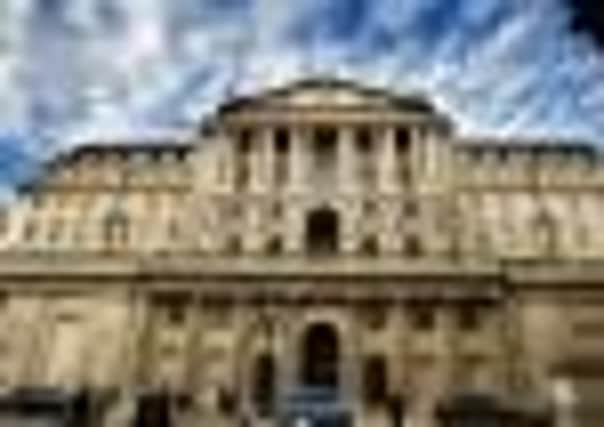Bank of England prints more money: Printing an extra £50bn for UK economy meets with lukewarm response


The Bank of England announced plans to inject a further £50 billion into the economy, taking the total amount of money printed since it started its “quantitative easing” (QE) plan to £375bn.
The move came as bankers in China and Brussels also moved to slash interest rates as they too seek to stoke momentum in their own economic areas, amid signs growth is either flatlining or slowing down.
Advertisement
Hide AdAdvertisement
Hide AdHowever, with the eurozone crisis still dampening global confidence, there were warnings that the measures would fail to spark a resurgence, while critics warned that the new round of QE would only serve to boost bank balance sheets and further depress annuity rates for pensioners.
Other analysts said ministers should be focusing far more on cutting inflation to boost real-term household incomes, and to push ahead with a “funding for lending” scheme, under which the Bank supplies cash to high street banks specifically to loan to cash-starved businesses.
The extra £50bn QE plan was not unexpected, with the Bank’s Monetary Policy Committee yesterday also opting to keep the UK’s record low interest rates of 0.5 per cent on hold.
The Bank acknowledges that the UK economy had “barely grown for a year and a half” and that the eurozone crisis was “weighing down on confidence” across the country.
It also noted the findings from earlier this week, saying that sales from export markets had also slowed down. As the Bank’s governor, Mervyn King, was announcing plans for Britain, so the European Central Bank (ECB) cut its key interest rate from 1 per cent to 0.75 per cent, a record low for the eurozone.
Like Mr King, the ECB’s president, Mario Draghi, said that economic growth remained “weak” with the uncertainty in the eurozone “weighing on confidence”.
Meanwhile, the Chinese Central bank cut its own benchmark interest rates for the second time in two months from 6.31 per cent to 6 per cent.
It comes after the annual rate of growth in China was recorded at 8.1 per cent in the first quarter, the slowest pace in almost three years.
Advertisement
Hide AdAdvertisement
Hide AdHowever, the moves failed to impress the City, with the FTSE 100 falling slightly yesterday, despite the news.
At the same time, even business chiefs at the Confederation of British Industry who backed the Bank’s plan said the impact of the new round of QE “may only be modest”.
Esmond Birnie, chief economist at accountants PwC in Scotland and Northern Ireland, warned that the move was “unlikely to be effective by itself”, and called on monetary policy makers to do more to stimulate growth.
He added: “More emphasis is also needed from the government on supply-side measures, such as reductions in business regulation, medium-term tax reform and a stronger programme of employment and training opportunities for young people.”
David Kern, chief economist at the British Chambers of Commerce, said the effect of QE is likely to be “marginal” and “could be counter-productive”.